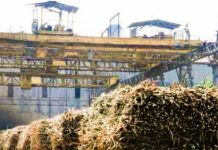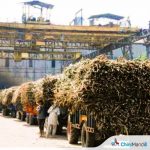India’s pivotal role in the global rice market is currently facing a series of challenges that have far-reaching implications. These issues not only jeopardize global food security but also pose a direct challenge to grain-based distilleries that depend on rice for ethanol production.
Underlying Causes of the Rice Shortage:
Several factors contribute to the ongoing rice shortage in India:
1. Adverse Weather Conditions: Droughts or floods have severely affected rice yield, particularly problematic given India’s reliance on the monsoon season.
2. Increased Production Costs: The rising costs of inputs like fertilizers, pesticides, and fuel have led to reduced planting and lower crop yields.
3. Reduced Planting Area: Farmers are planting less rice due to factors such as lower profitability compared to other crops or insufficient water supplies.
4. Pestilence and Plant Diseases: An increase in pestilence or disease has impacted rice crops, reducing harvestable output.
5. Policy Decisions: Government policies promoting crop rotation and sustainable agriculture have led farmers to switch from rice to less water-intensive crops.
6. Hoarding and Speculation: Traders hoarding rice and engaging in speculation during expected scarcity have exacerbated the situation.
7. Global Demand: The global demand for rice is putting pressure on domestic supplies, especially if other major rice-producing countries are experiencing shortages.
8. Stockpiling: Government stockpiling for national food security is limiting rice availability for other uses, including ethanol production.
The Domino Effect on Ethanol Production:
The rice shortage has several implications for ethanol factories:
1. Operational Disruption: The scarcity of rice leads to operational disruptions, prompting factories to explore alternative supply chains or feedstock options.
2. Increased Costs: The shortage results in higher rice prices, squeezing profit margins and potentially leading to increased consumer prices.
3. Switching Feedstock: Factories may consider using alternative grains or non-food biomass for ethanol production, which could necessitate changes in processing technology.
4. Contractual Challenges: Long-term supply agreements based on rice availability may need renegotiation, leading to legal and financial complications.
5. Reduced Output: The shortage directly translates into reduced ethanol output, affecting various industries that rely on ethanol.
Impacts on India’s Ethanol Blending Plans:
The rice shortage also impacts the Indian government’s ethanol blending plans:
1. Ethanol Blending Targets: Hindered ethanol blending targets due to scarcity, impacting efforts to reduce dependence on imports and provide cleaner fuel.
2. Policy Adjustments: Potential temporary adjustments to biofuel policy to account for the shortage, which could conflict with self-reliance initiatives.
3. Environmental Goals: Setbacks in ethanol blending implementation impact India’s commitment to reducing greenhouse gas emissions.
4. Price Volatility: Uncertainties in ethanol production lead to fuel price volatility, affecting the overall economy and potentially leading to inflation.
Proactive Measures for Factories:
To address the shortage, factories can take proactive measures:
1. Diversifying Feedstock: Exploring alternative raw materials that can be used without significant modifications to existing machinery.
2. Advancing Technology: Investing in technology to process a wider range of biomass options.
3. Strategic Planning: Developing contingency plans to quickly adapt to feedstock changes and market fluctuations.
In Summary:
The adversity faced by India’s rice sector is a stark reminder of the interconnectedness of global markets and the need for agility in the face of supply chain disruptions. By adopting a forward-thinking approach, distilleries can overcome these challenges and secure a resilient future.
Disclaimer: The views and opinions expressed in the article by Dilip Patil, Managing Director of Samarth SSK Ltd., are solely his own.












